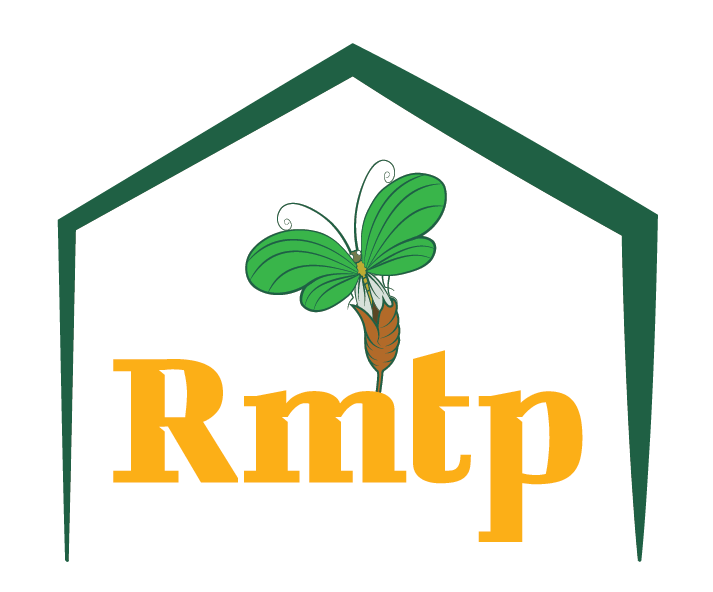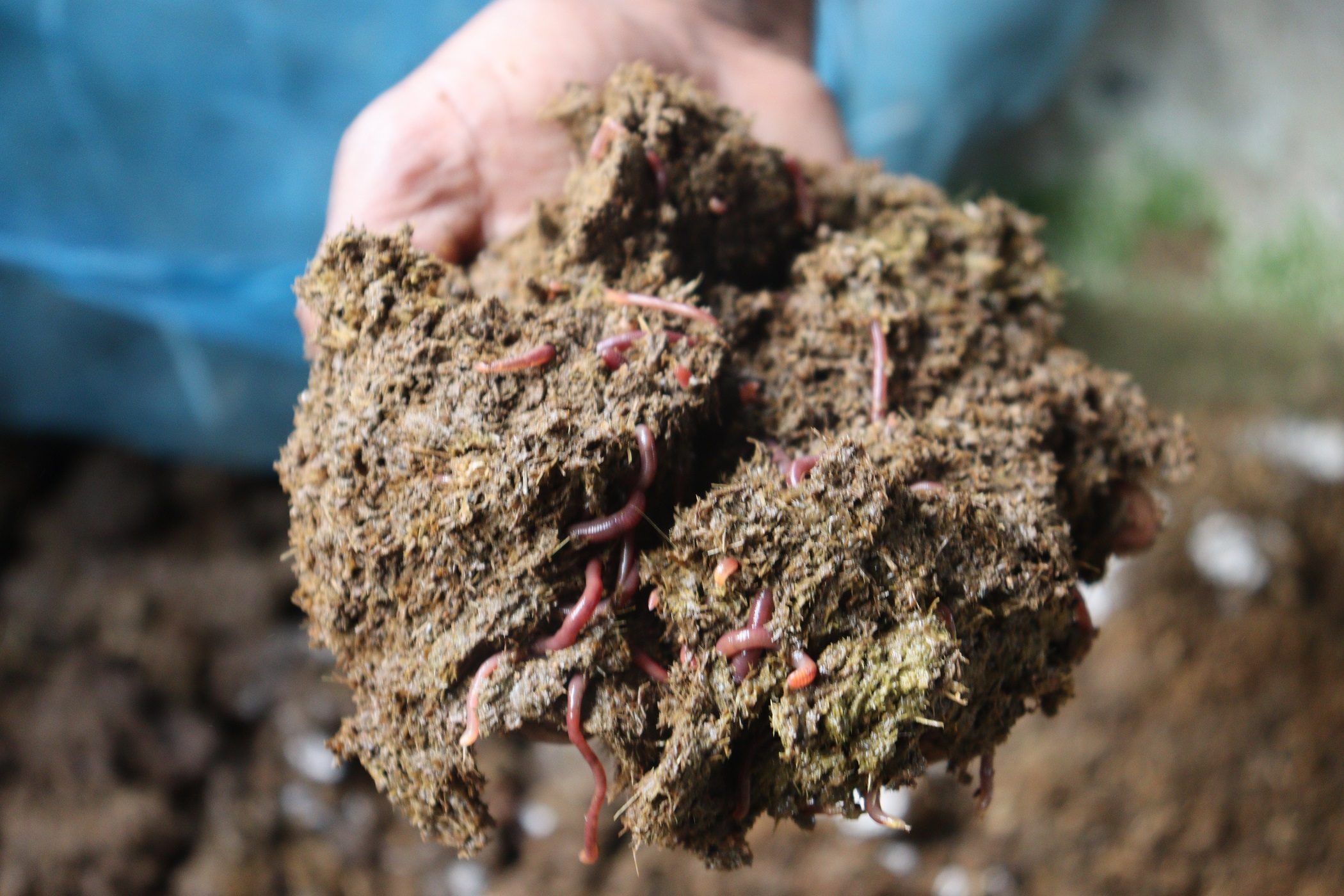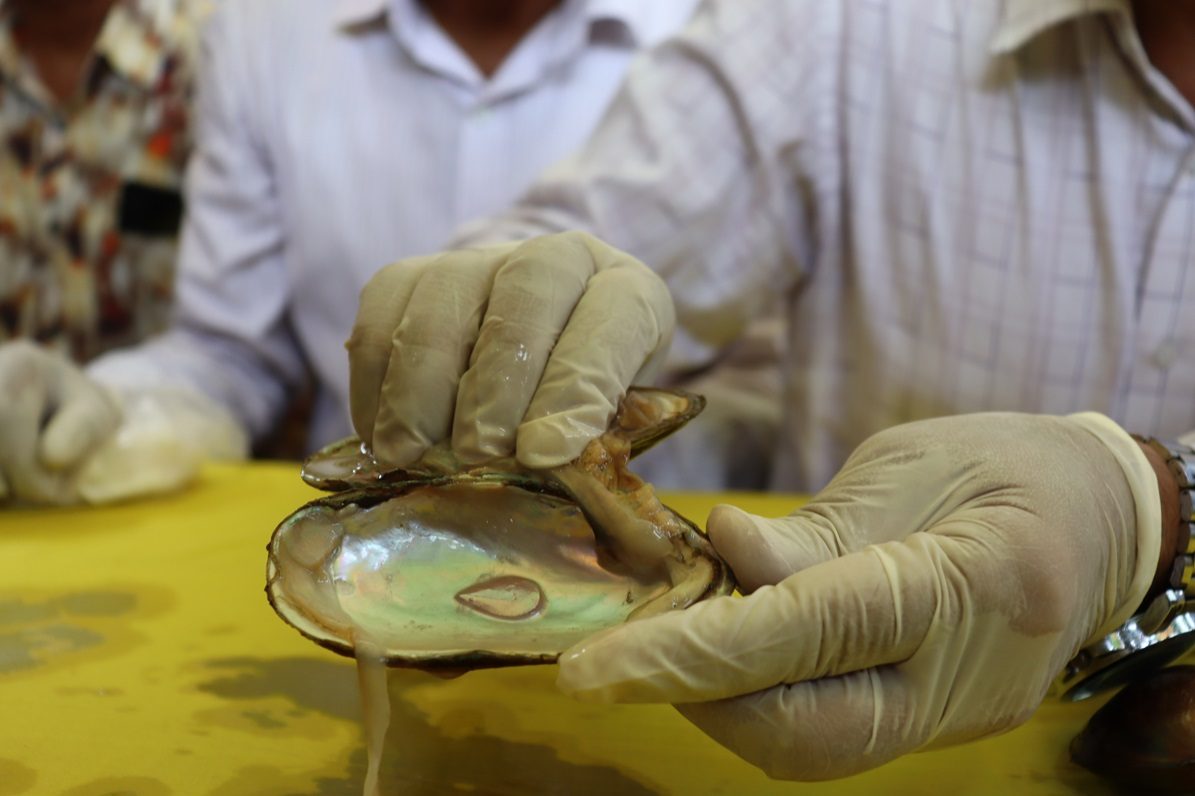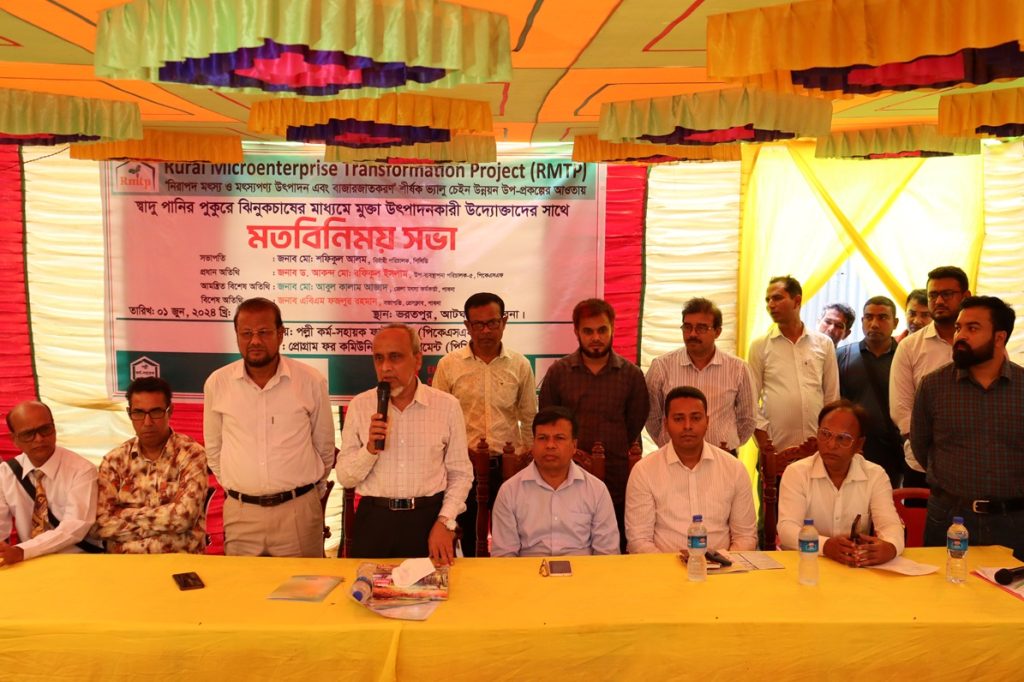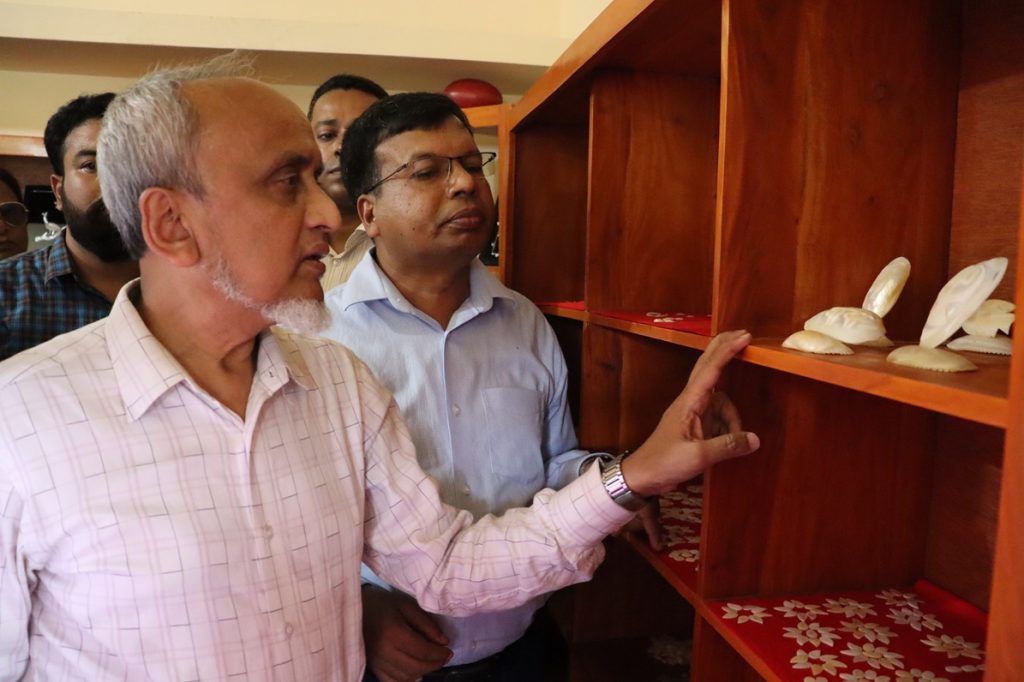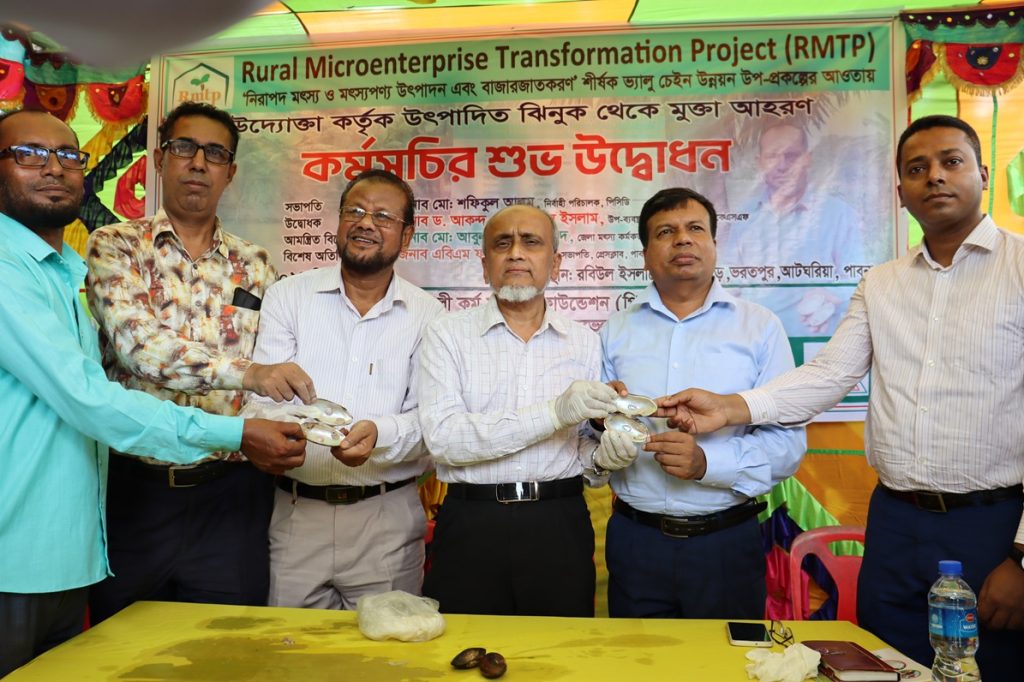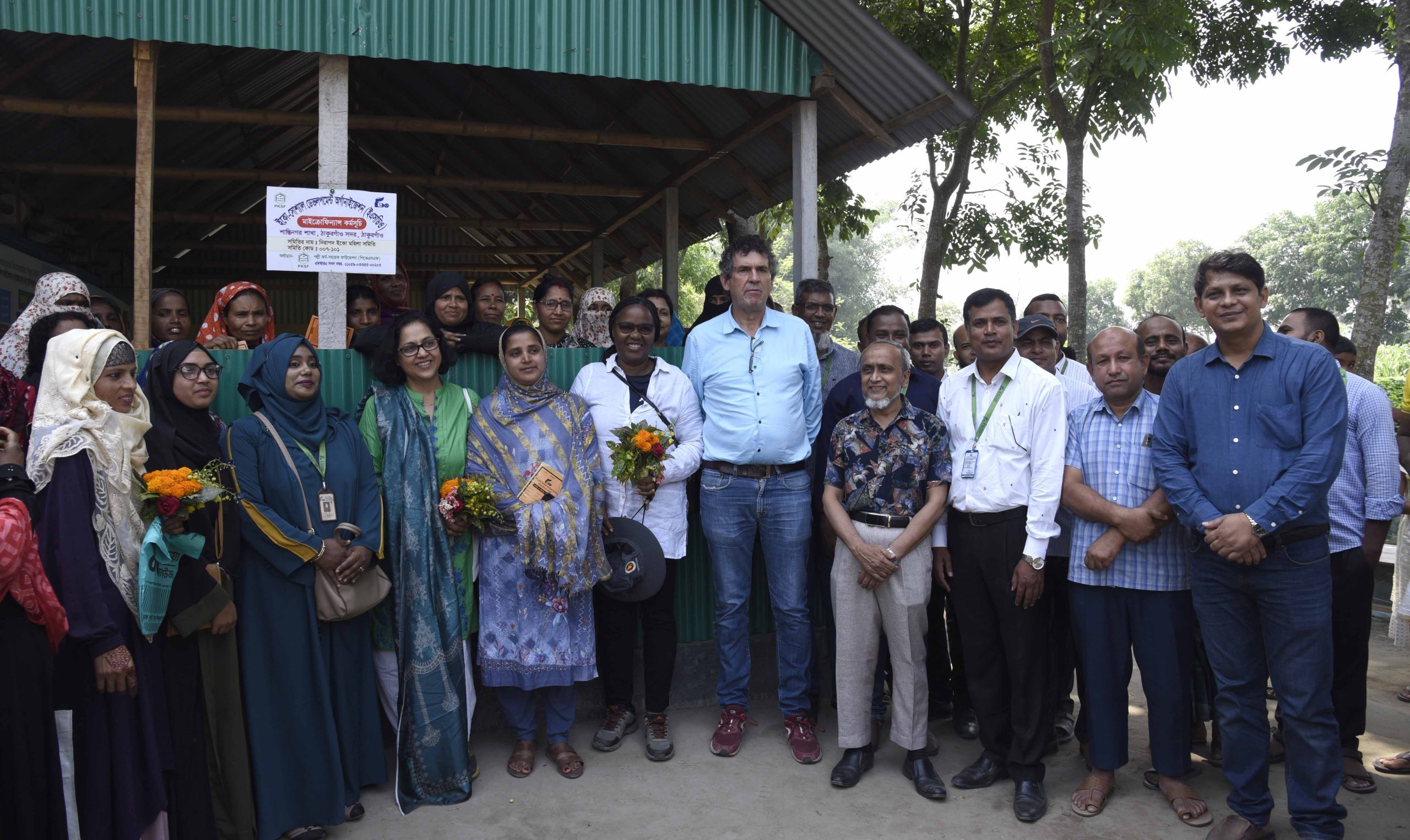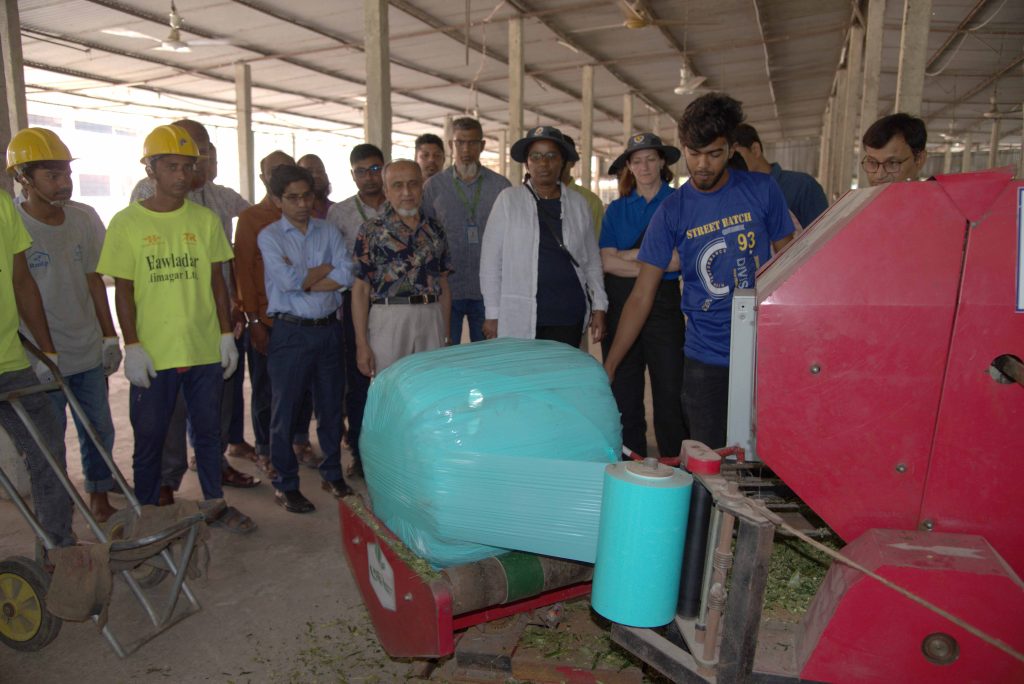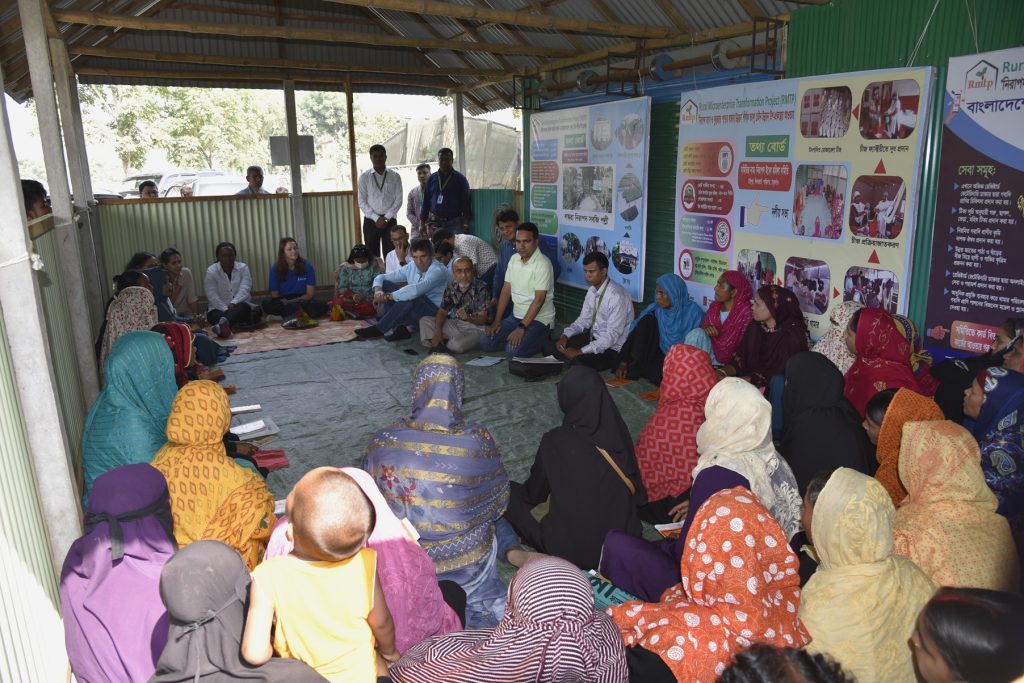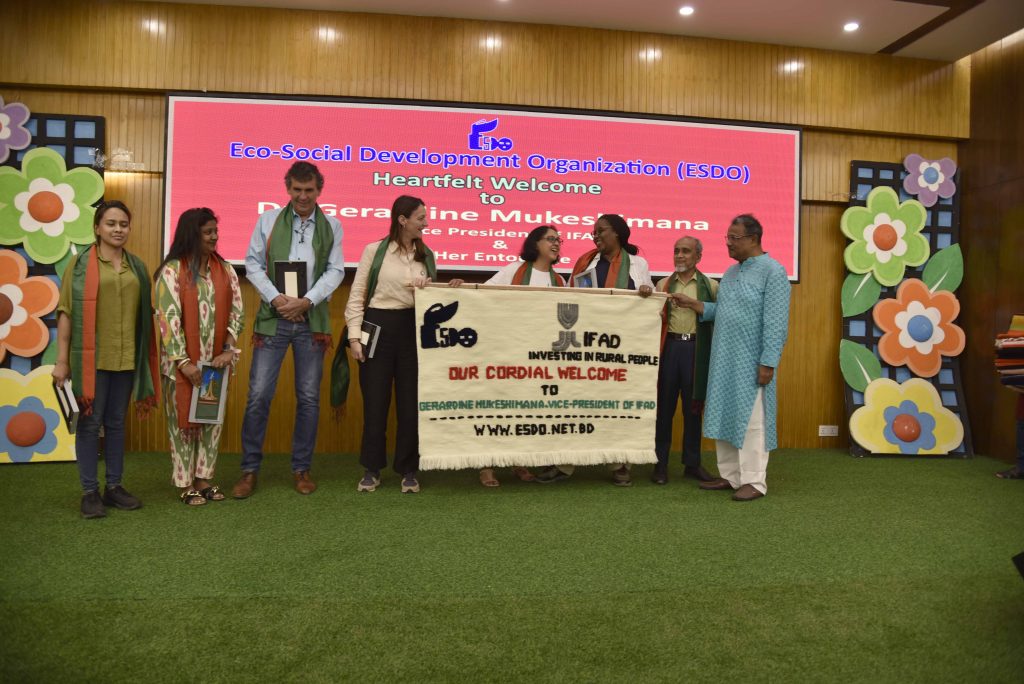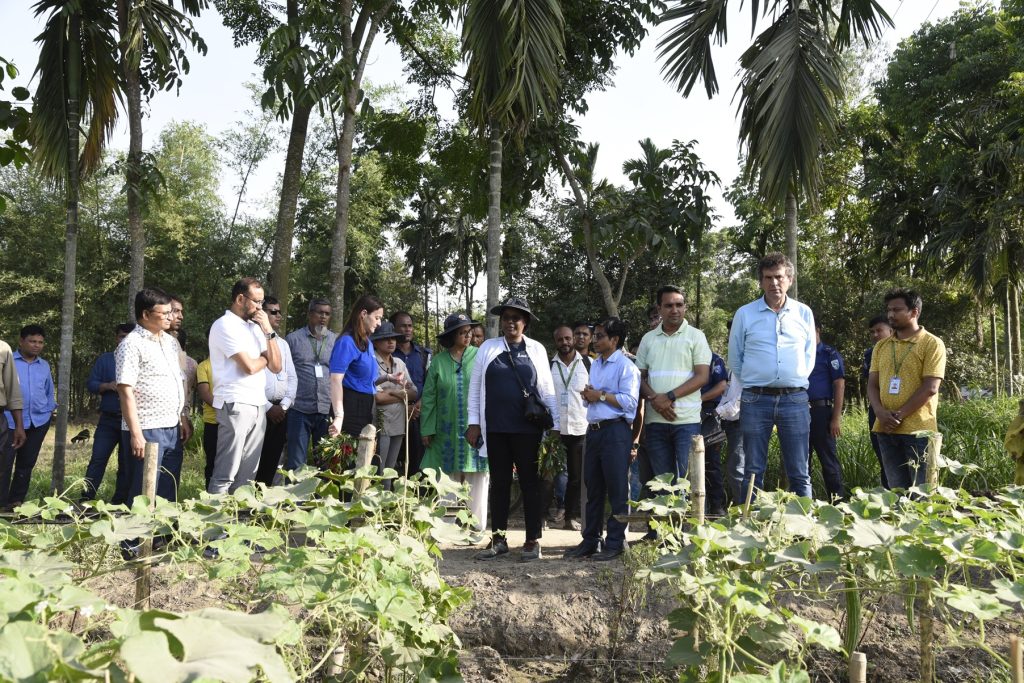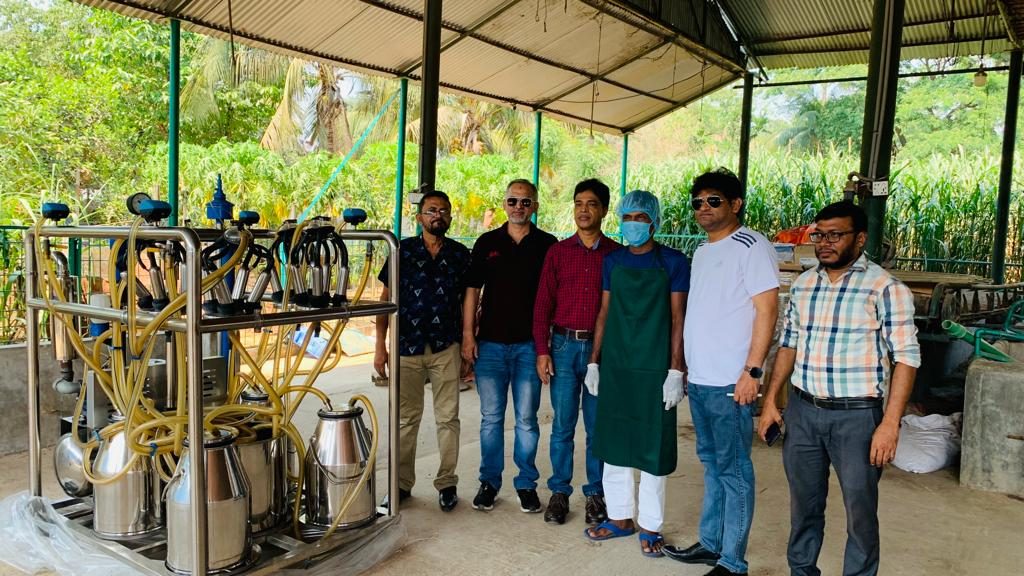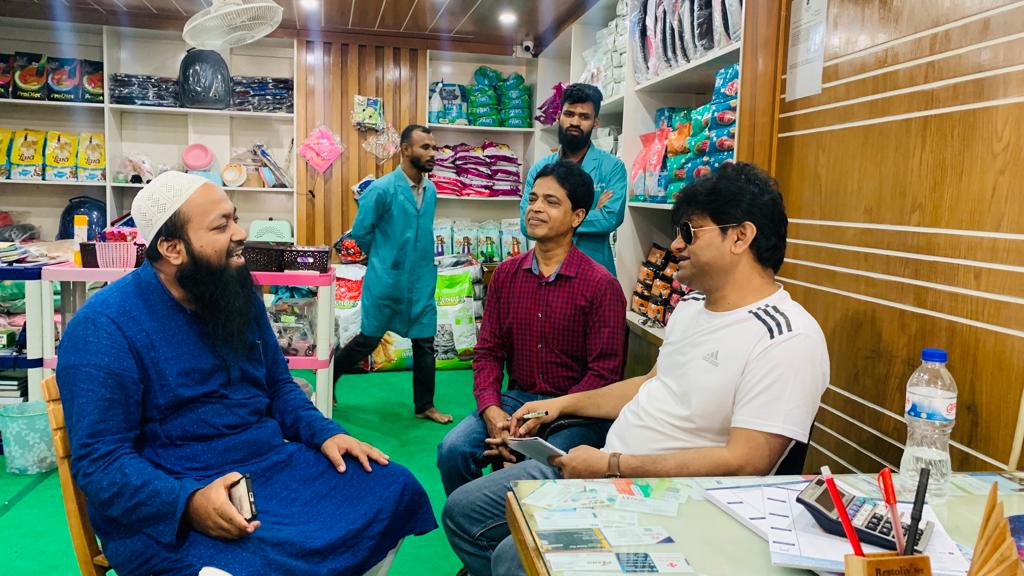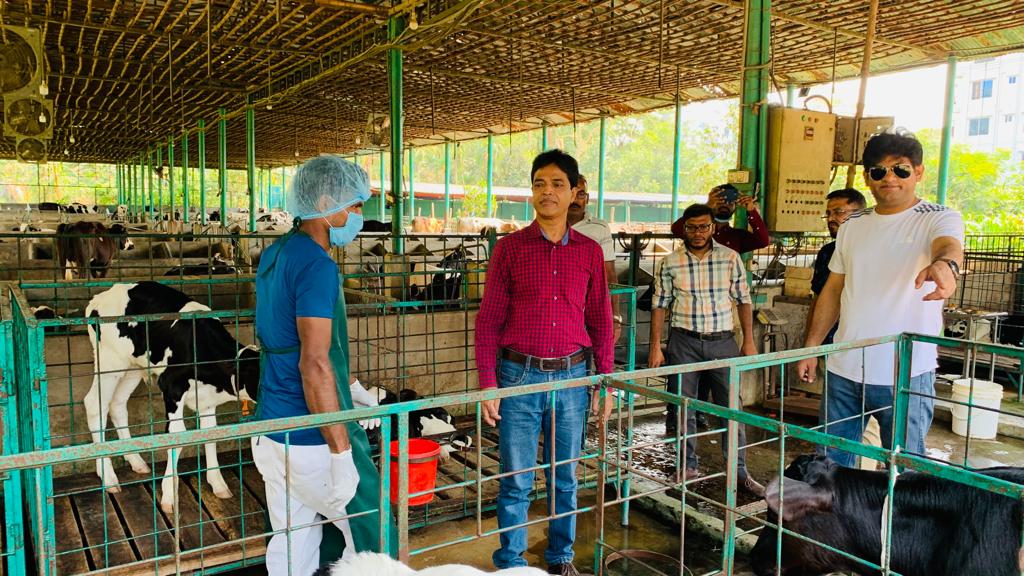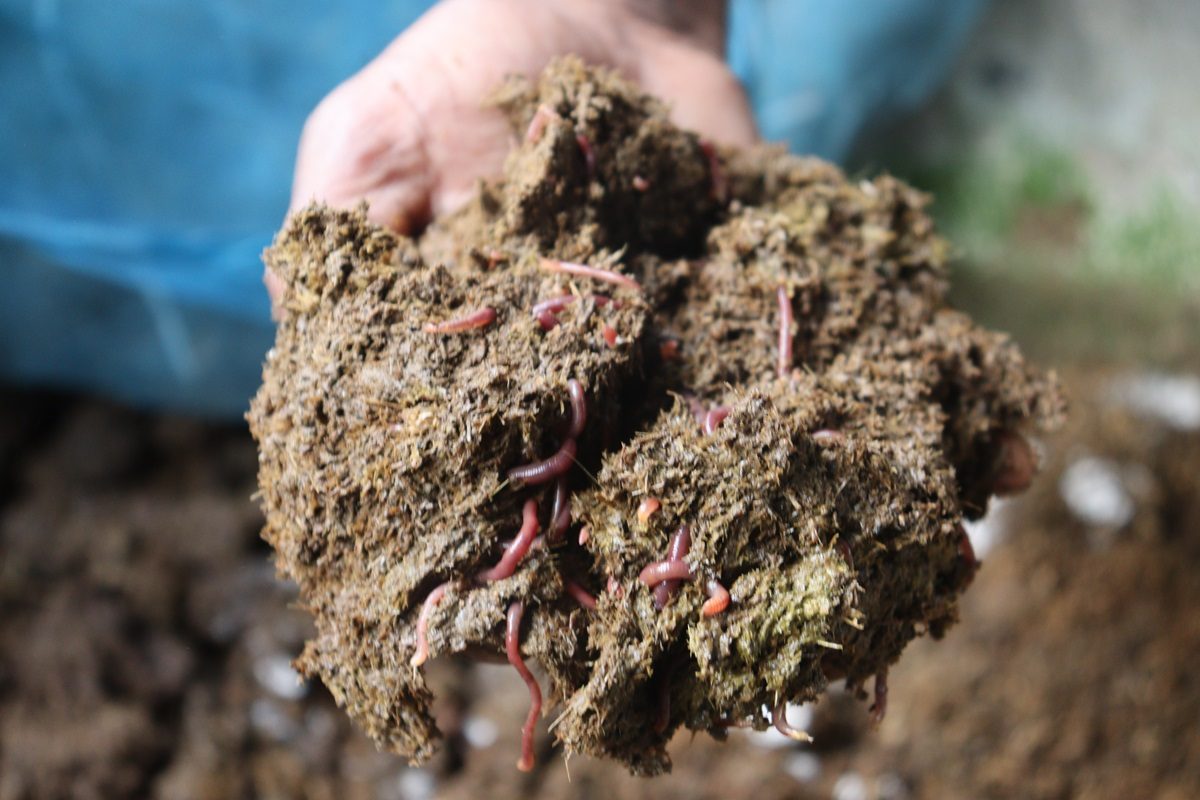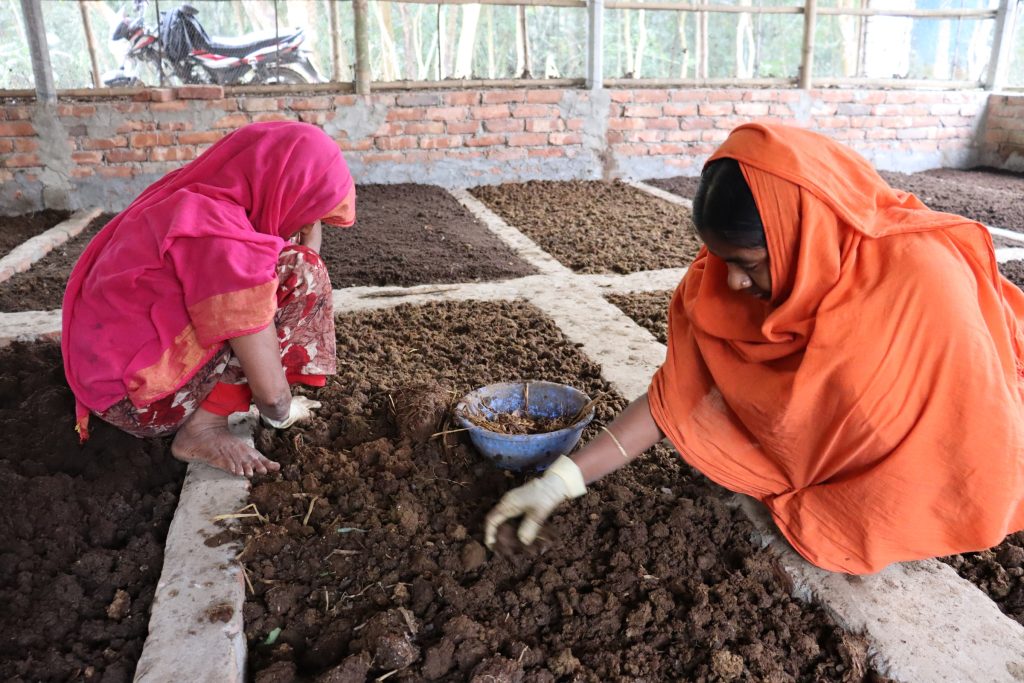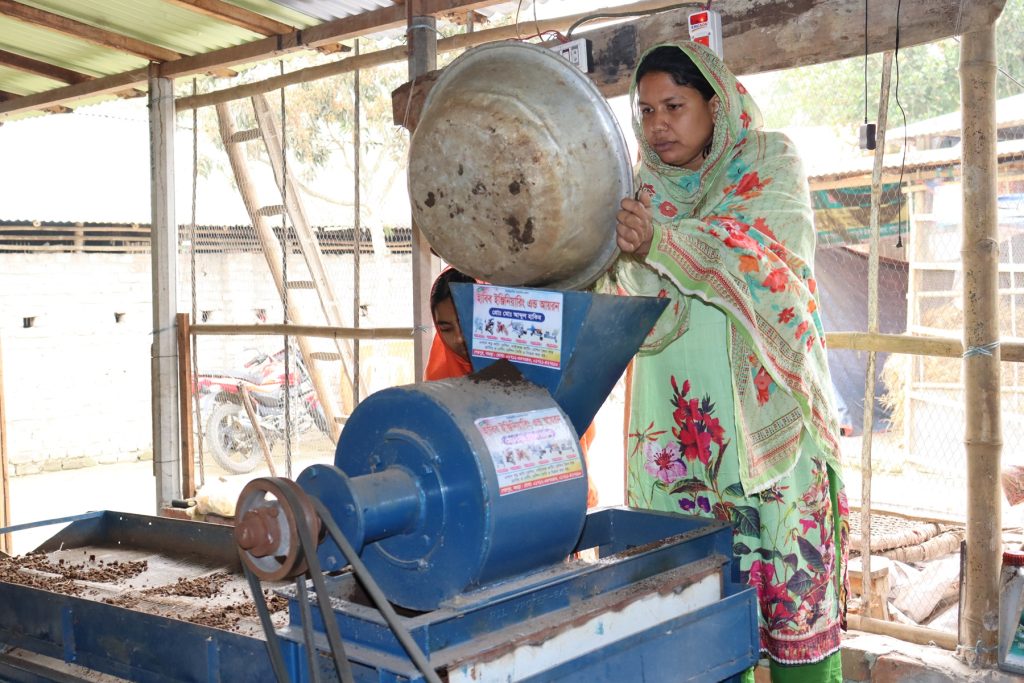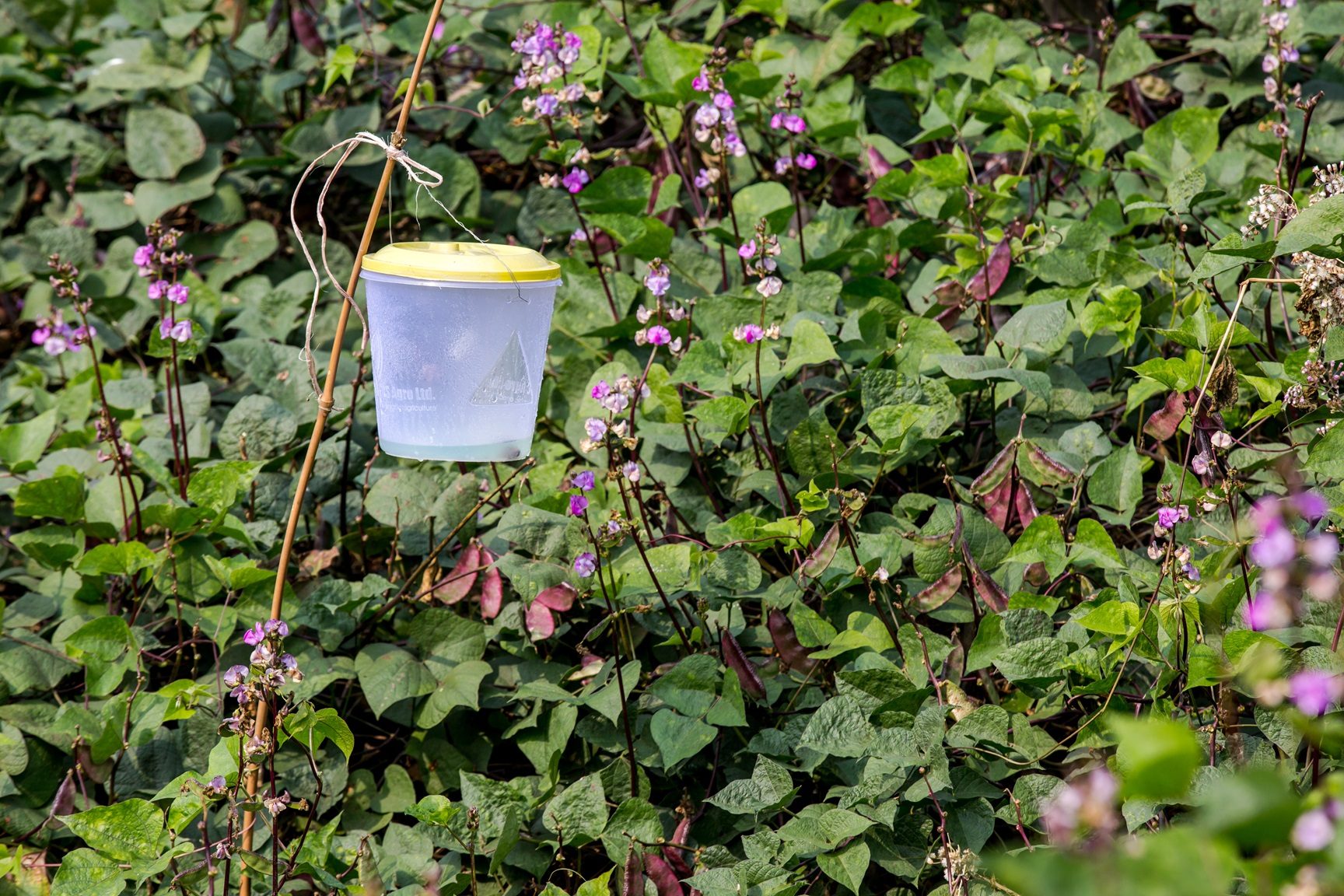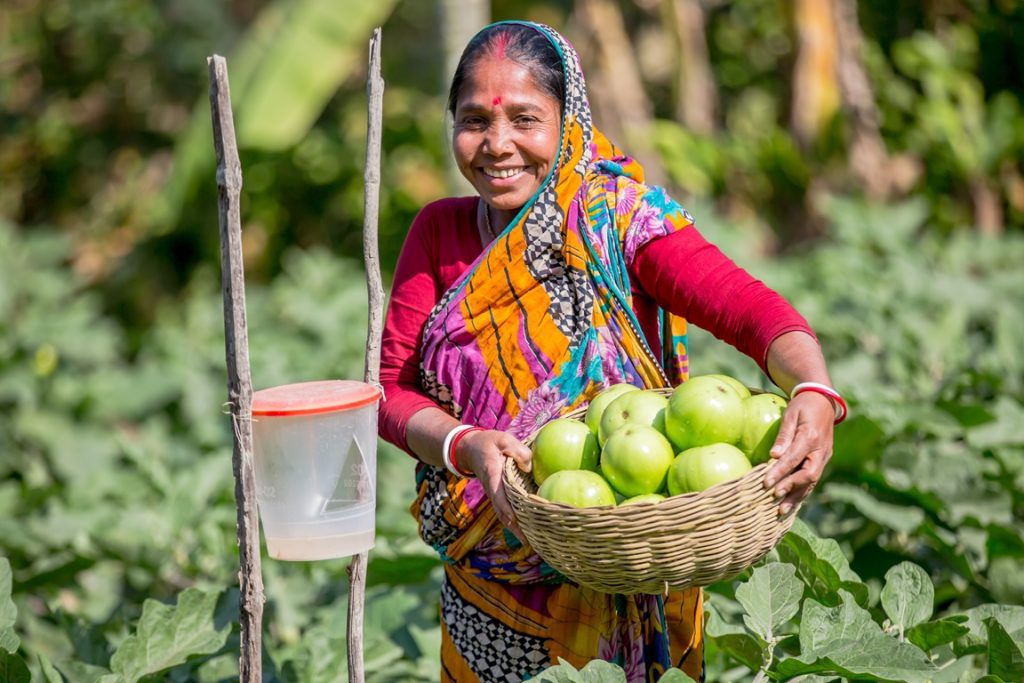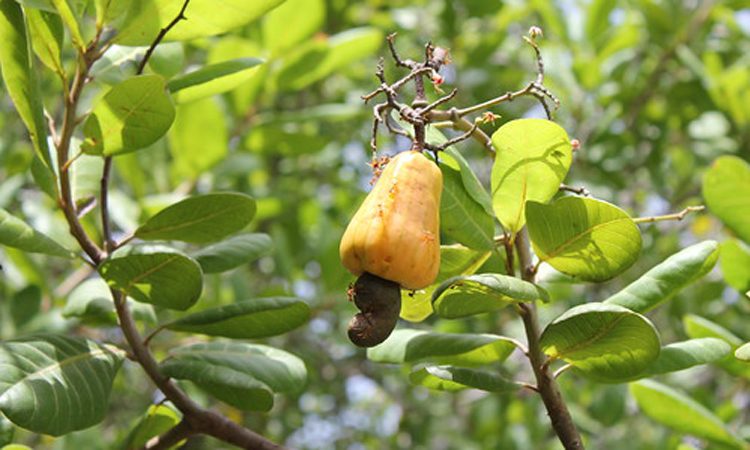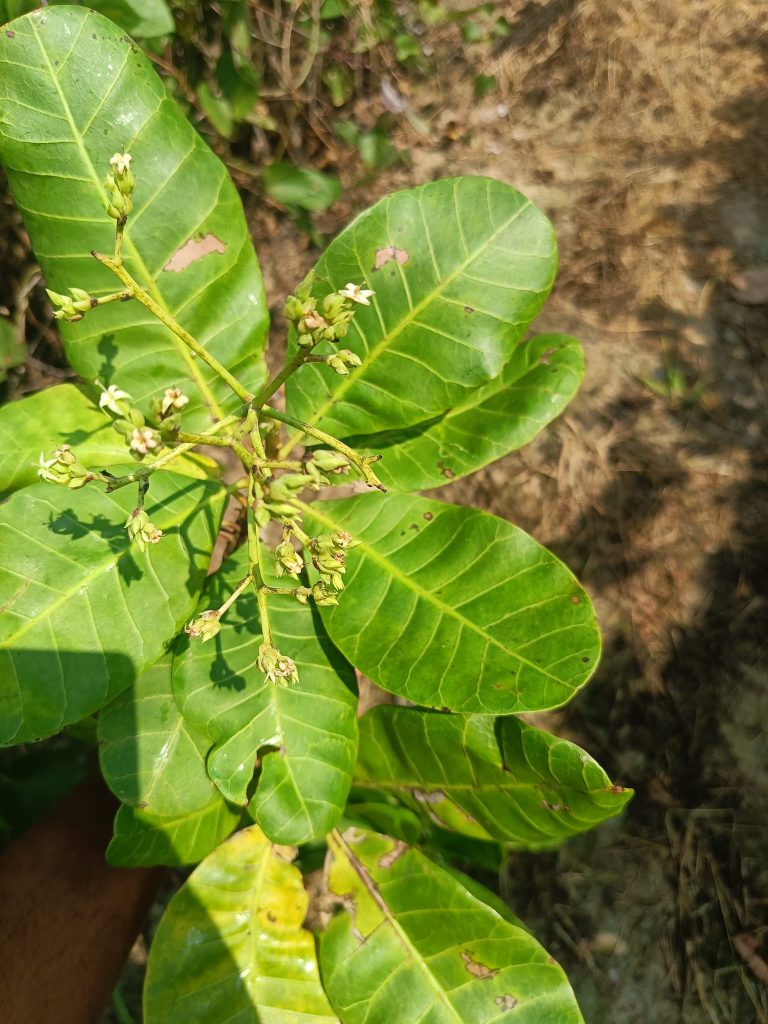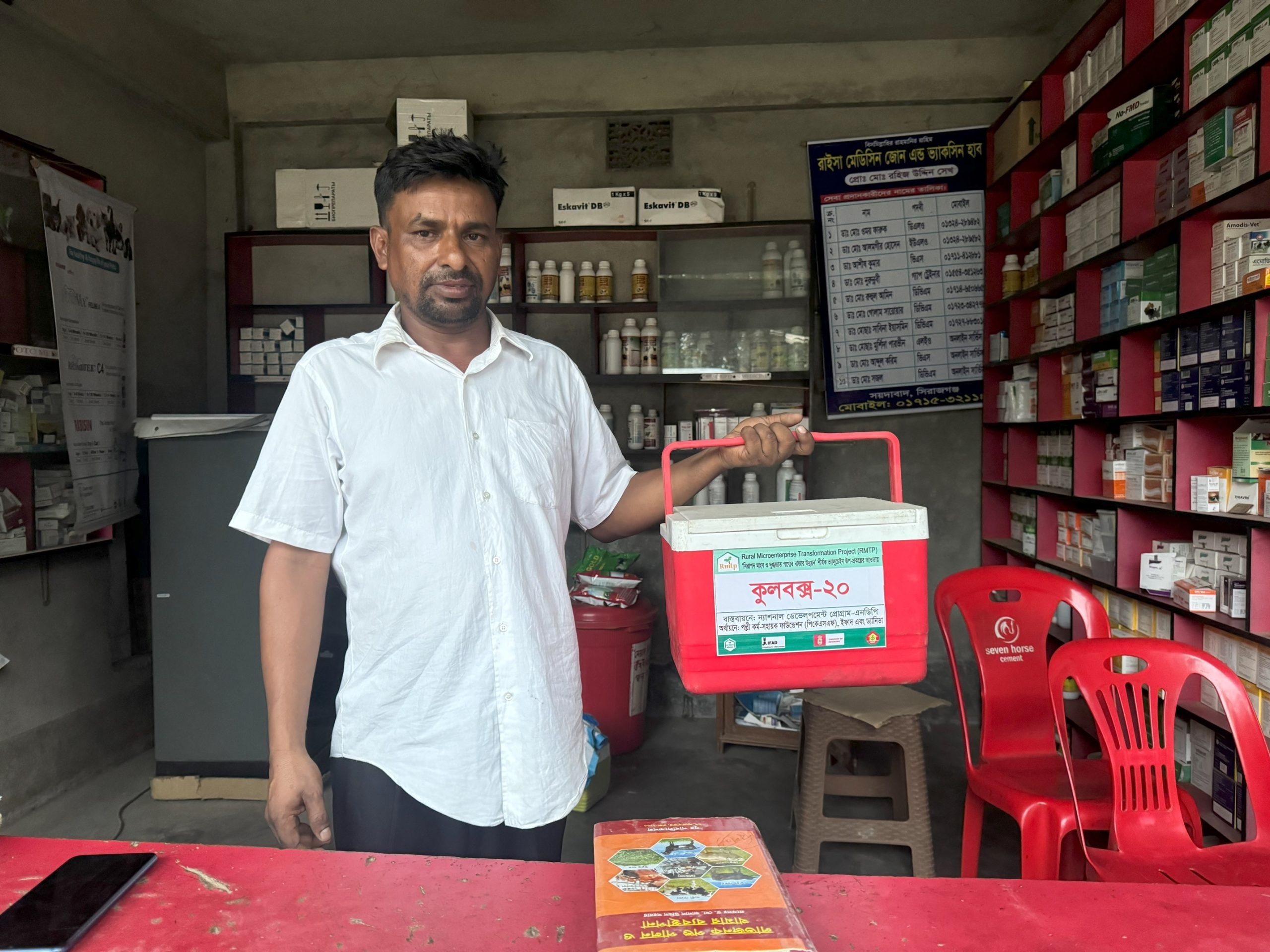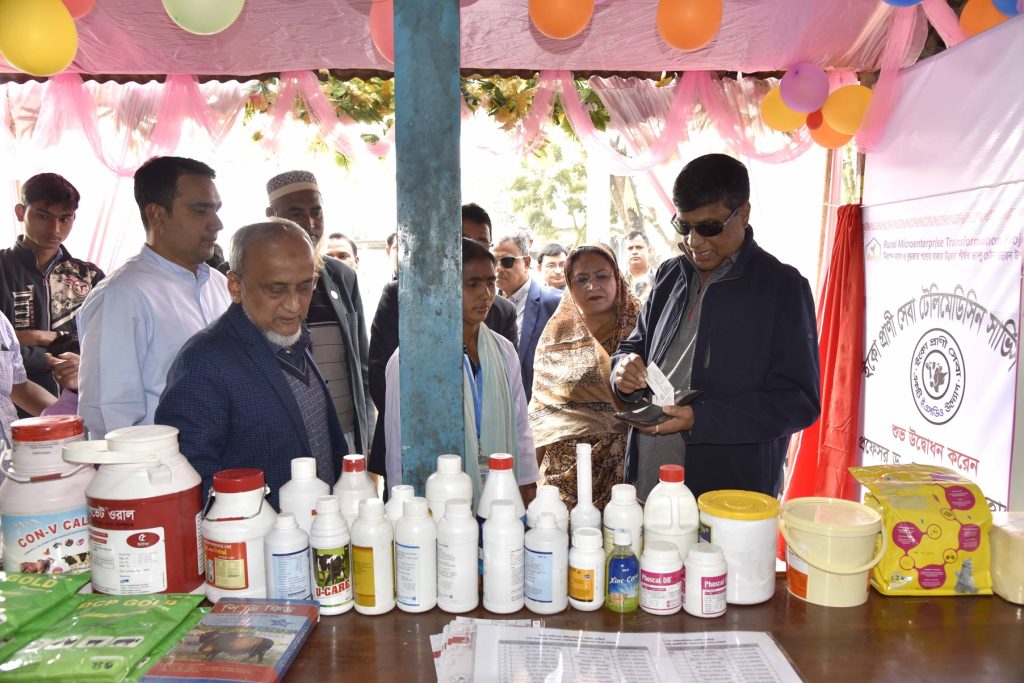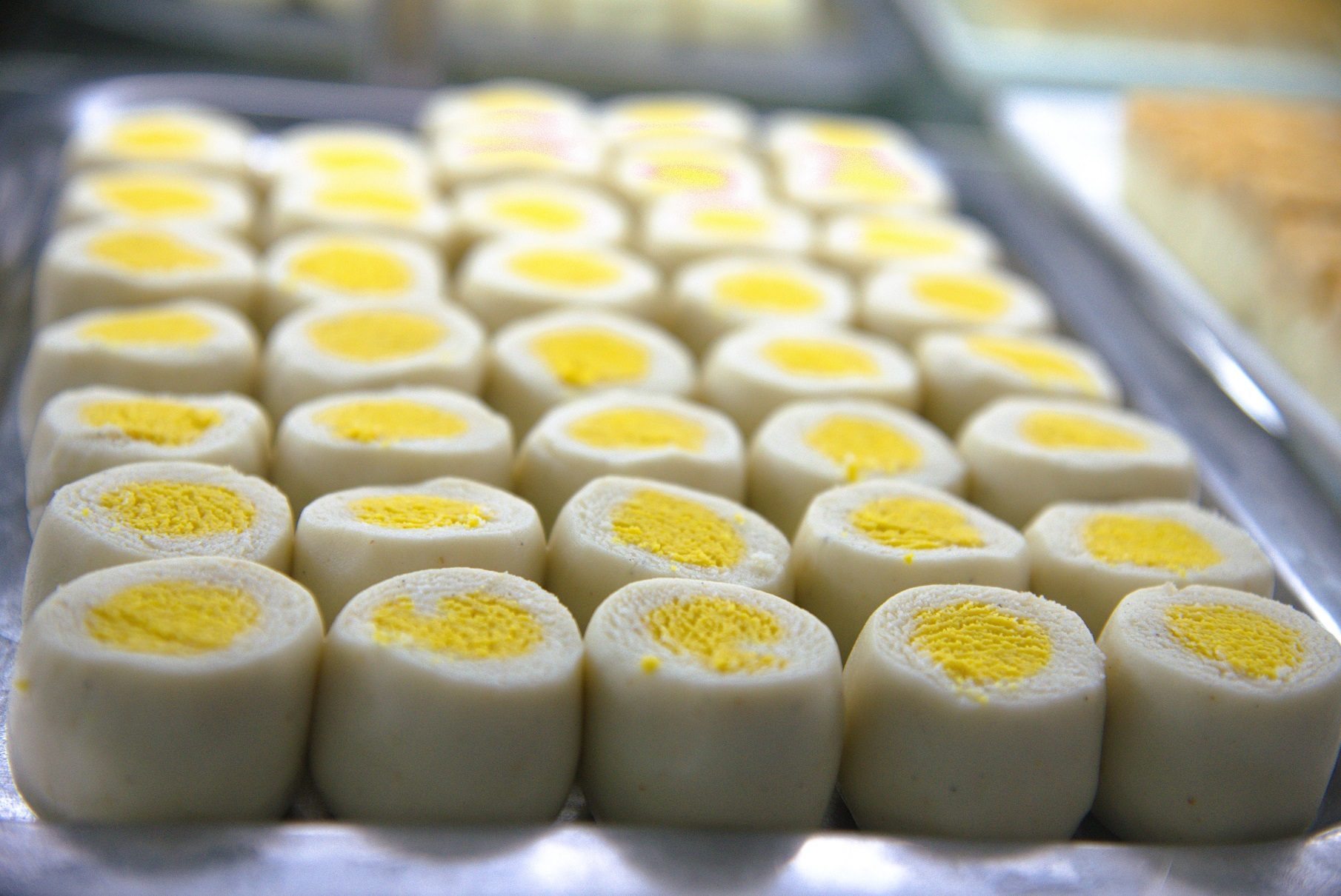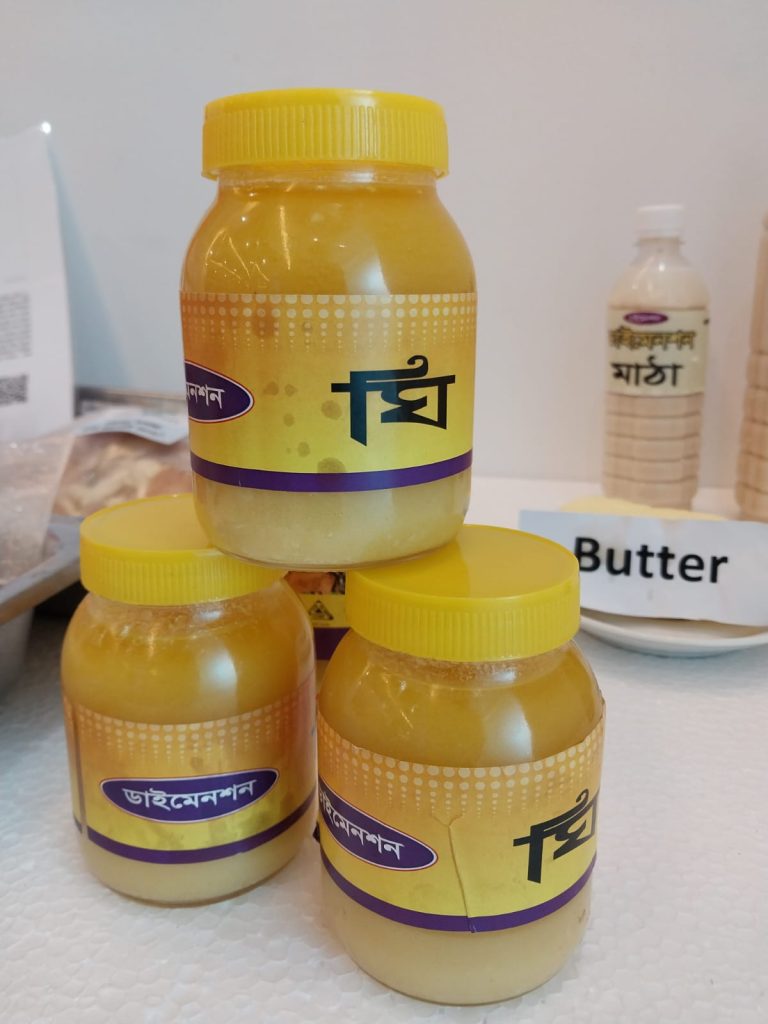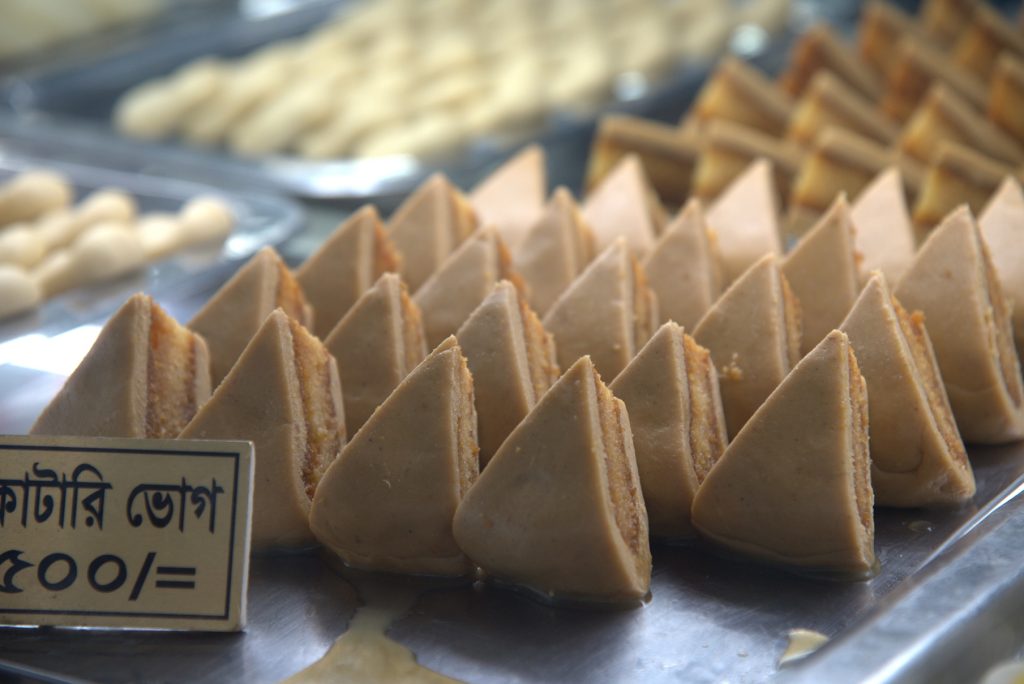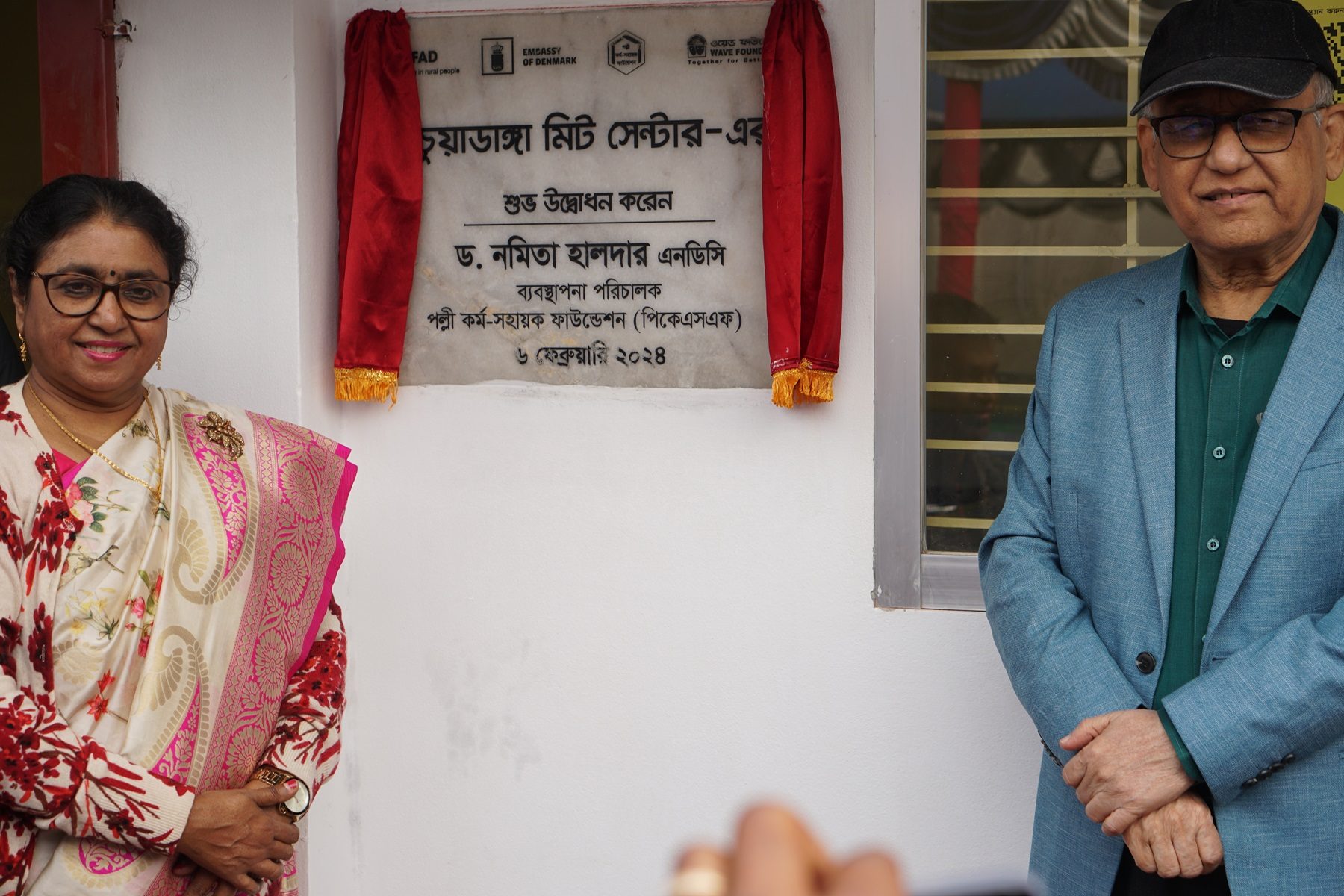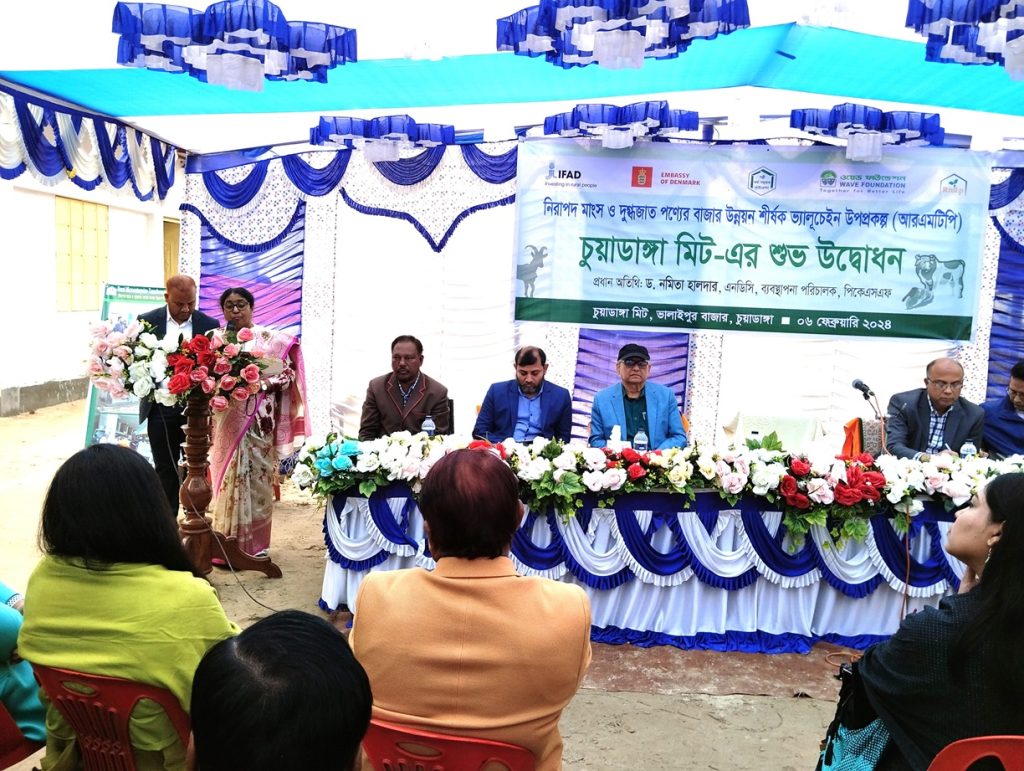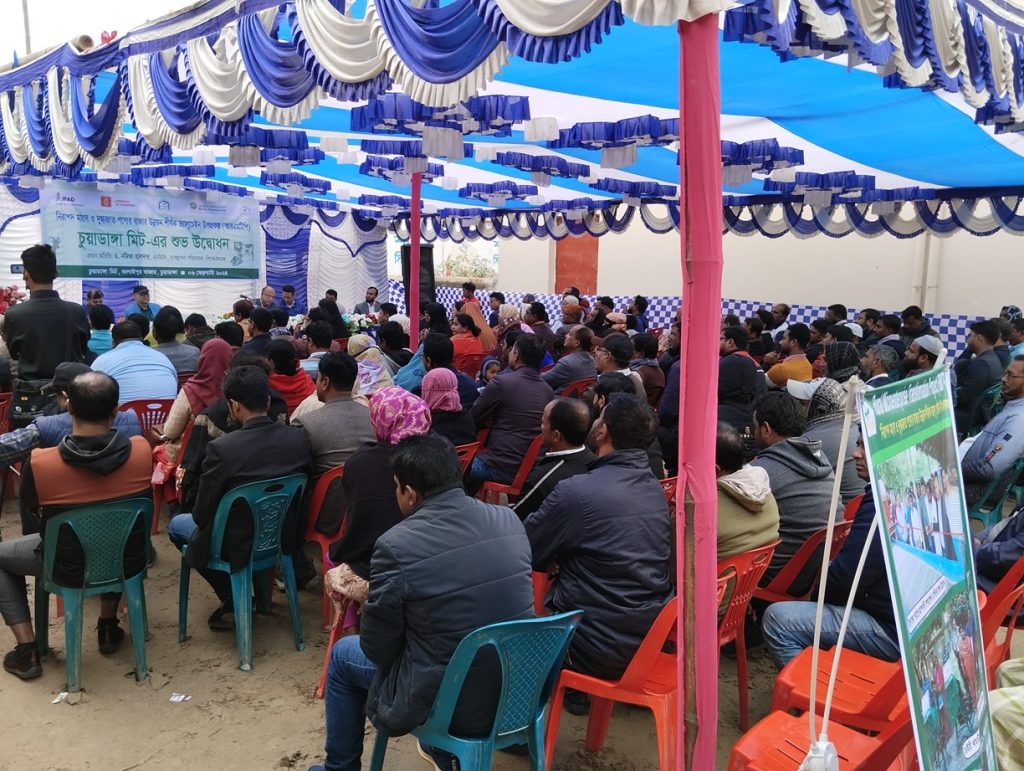Bogura’s Tk273cr organic fertiliser production sows seed of ‘agro revolution’
Suraiya Farhana Reshma considers herself part of an “agricultural revolution” sweeping through Bogura, which aims to replace chemical fertilisers with organic alternatives. She now earns Tk2.5 lakh per month producing organic fertilisers on her farm, using earthworms and dung. The venture, which employs 15 people, has transformed her economic situation and turned her into an advocate for environmental preservation.
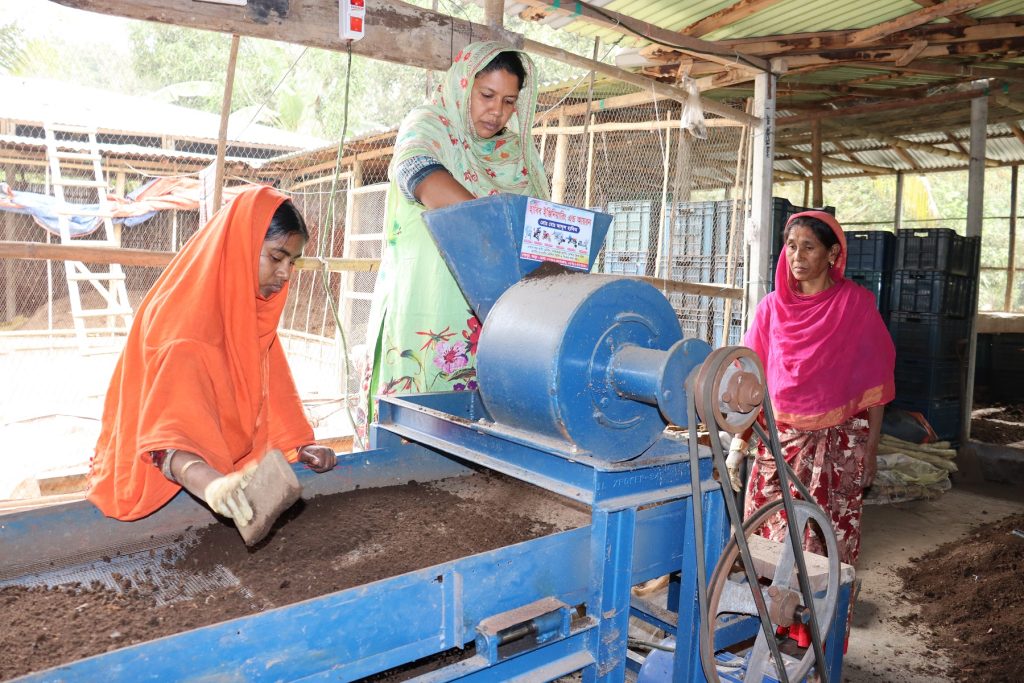
Her vision and hard work have also earned her several national awards. Starting from a modest background, her net wealth now exceeds Tk2 crore. Promoting the slogan of preserving ecological balance, she has already trained around 700 people to produce organic fertilisers in the district.
“Hundreds of unemployed men and women are turning to organic fertiliser production. Public-private initiatives and assistance have also increased. We plan to create large-scale pesticide-free agricultural areas in the future,” Reshma told TBS.
According to the Department of Agricultural Extension, Bogura, at least 1.83 lakh tonnes of organic fertilisers worth over Tk273 crore are produced in the district annually. The price of one kg of organic fertiliser is around Tk15.
Big companies, including ACI, purchase organic fertilisers from producers in Bogura and sell them under their own brands and packaging.
NGOs training entrepreneurs
Organic fertiliser entrepreneurs in Bogura and nearby districts also receive training from private organisations, such as Gram Unnayan Karma (GUK) under Rural Microenterprise Transformation Project (RMTP).
This NGO has trained 30 entrepreneurs in producing organic fertilisers commercially. They produce and market at least 1,551 tonnes of compost every month. According to sources, they sell organic fertilisers worth Tk11.6 crore annually, collecting dung from 7,000 local farmers.
The project is funded by the International Fund for Agricultural Development (IFAD), Palli Karma-Sahayak Foundation (PKSF), and Danish International Development Agency. About 22,670 farmers use the fertilisers produced through the project in Bogura alone.
Dr Md Mahbub Alam, senior director of Gram Unnyan Karma, told TBS, “Due to the use of chemical fertilisers and pesticides, crops or milk and meat are full of poisons. They have long-term adverse effects on our health. For this reason, along with government institutions, we are working with the farmers to produce safe vegetables, fish and meat.”
One of the farmers involved in the project, Zainab Khatun from Sherpur upazila, has cultivated vegetables on one bigha of land using organic fertilisers. She said, “Organic fertilisers are our only way to produce poison-free vegetables. People now want to live in a healthy way.”
Rashedul Islam from the Shialkol area of Sirajganj began producing organic fertilisers after being trained at several government and private organisations. His farm produces at least 50 tonnes of organic fertilisers per month. He plans to increase production to between 150 and 200 tonnes per month next year.
Rashedul Islam further mentioned that entrepreneurs sell their manufactured fertilisers through their own Facebook pages, through big traders, and directly to farmers.
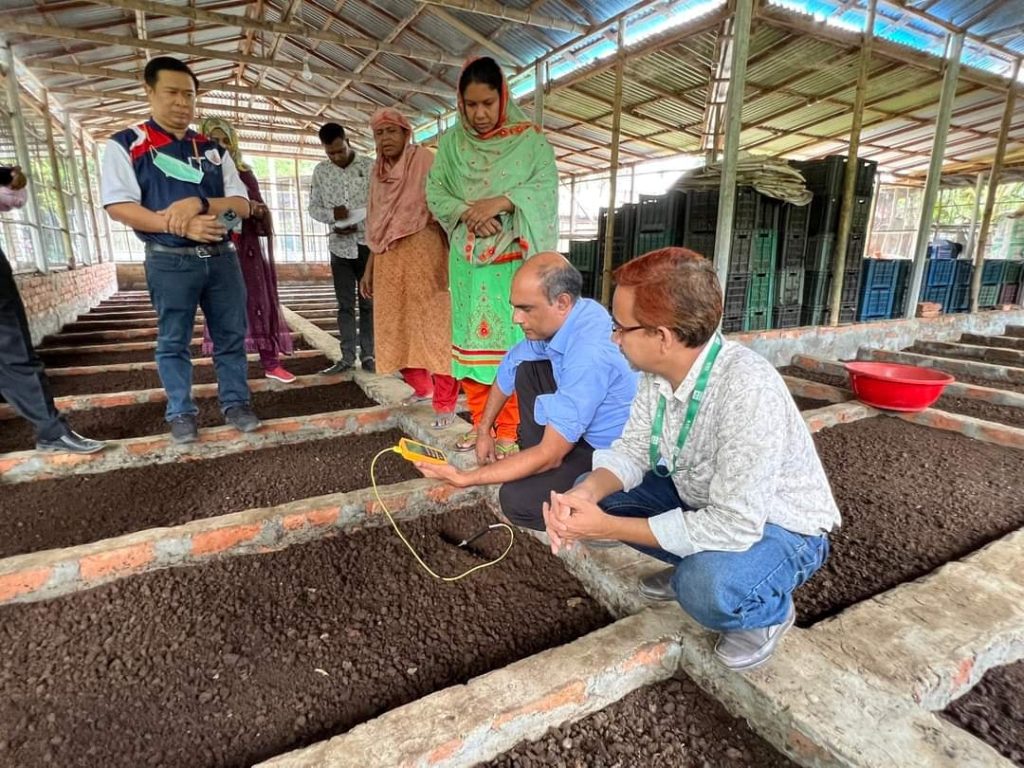
Entrepreneurs say the Palli Karma-Sahayak Foundation (PKSF) is helping them with training, cash assistance, and setting up machines and compost plants.
Officials at PKSF say that 352 commercial organic fertilisers production factories will be established in the country, with 174 already being in production. These factories are collectively selling about 5,000 tonnes of fertilisers per month and have created employment for hundreds of people.
Dr Nomita Halder, managing director of PKSF, said, “We are working to improve the quality of life by supporting those involved in safe food production. Various materials and technologies are being made available to entrepreneurs for this purpose.”
Farmers preferring organic fertilisers
Farmers in the area are increasingly adopting organic fertilisers because they are cost-effective and provide better yields.
Afzal Hossain, a farmer from Shajahanpur upazila, has been using organic fertilisers for a long time. He said, “Vegetable plants are more vibrant and strong with this fertiliser. The soil condition also remains good. Organic fertilisers cost half as much as chemical fertilisers. The yield is also higher.”
Shubhagat Bagchi, deputy director of Bogura Rural Development Academy, stated that yields increase by 25% to 30% with organic fertilisers compared to chemical ones.
He was involved in research on the impact of organic fertilisers in Bogura, Naogaon, Gaibandha, Jaipurhat, and Sirajganj a few years ago.
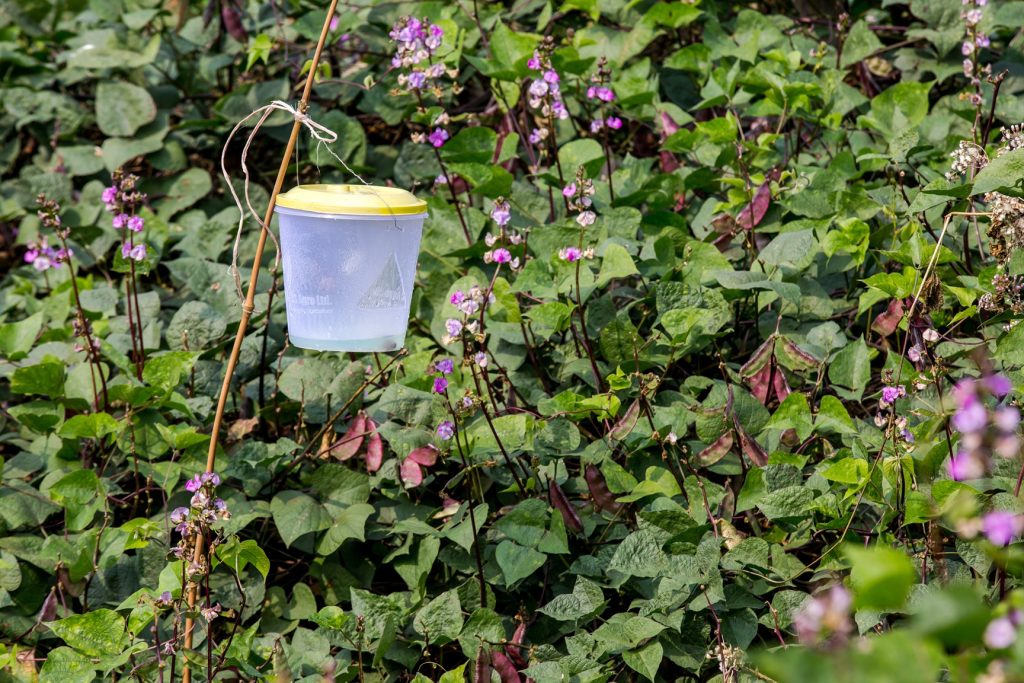
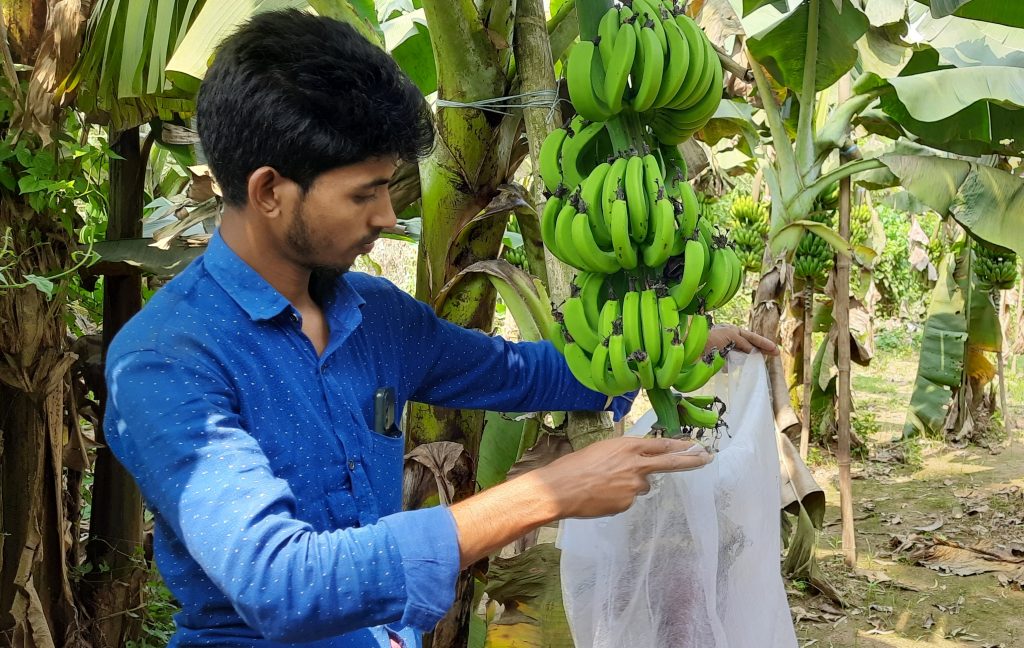
“Organic fertilisers are very beneficial for the soil. Our research also shows that once farmers use organic fertilisers, they no longer rely on chemical fertilisers. The trend of using organic fertilisers has increased among farmers,” he said.
Agricultural scientists highlight several benefits of using organic fertilisers, including improved air movement in the soil, better water retention, maintaining the right temperature, and enhanced soil structure.
Dr Rahedul Islam Rahi, associate professor in the Department of Geography and Environment at Pabna University of Science and Technology, said that producing organic fertilisers from cow dung reduces methane production. “Its use improves soil quality, reduces farmers’ production costs, and creates a means of obtaining safe food,” he explained.
